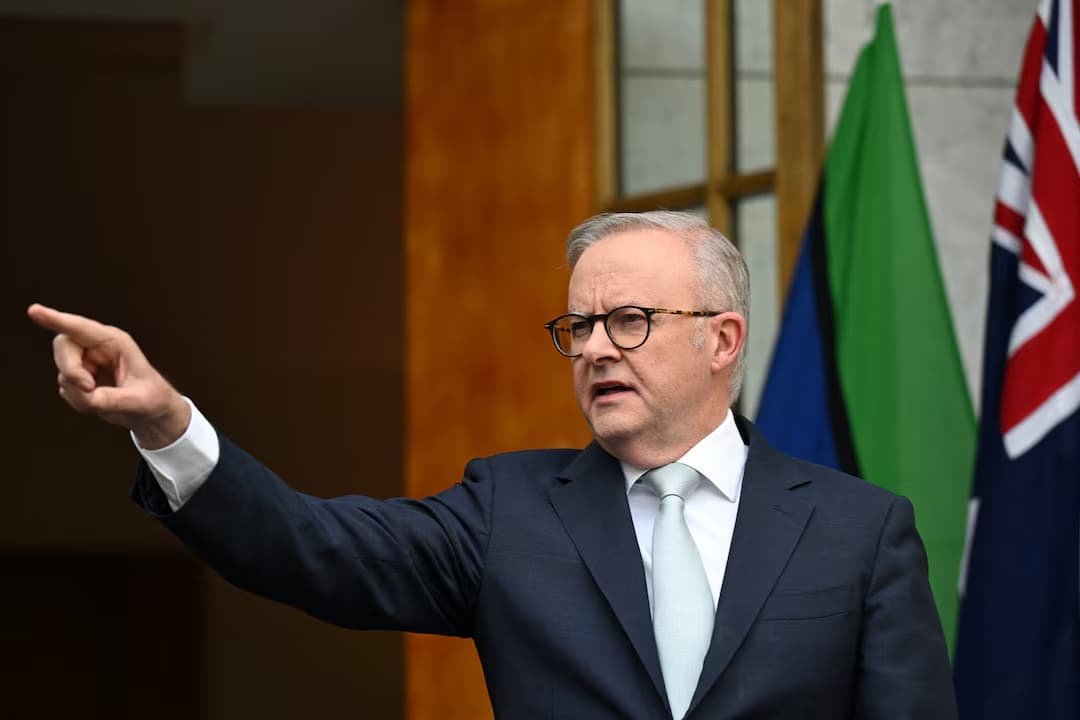Australia has launched a historically unprecedented diplomatic response, expelling Iran’s ambassador, Ahmad Sadeghi, along with three other officials, after its domestic spy agency, ASIO, determined that Tehran orchestrated antisemitic arson attacks on Australian soil. Prime Minister Anthony Albanese revealed that the intelligence linked Iran’s Islamic Revolutionary Guard Corps (IRGC) to two such attacks: the firebombing of the Adass Israel Synagogue in Melbourne in December 2024 and an arson attack on Lewis’s Continental Kitchen, a kosher restaurant in Sydney’s Bondi area, in October 2024.
Albanese, speaking at a Canberra press conference, described these actions as “extraordinary and dangerous acts of aggression” by a foreign government, aimed at “undermining social cohesion” and sowing discord within Australia’s multicultural society.
ASIO Director-General Mike Burgess explained that the IRGC had operated through a complex “layer cake of cut-outs”—paid intermediaries domestically to execute the attacks, shielding the regime’s direct involvement.
In parallel, Foreign Minister Penny Wong confirmed that Australia’s embassy in Tehran would suspend operations, with Australian diplomatic staff relocated safely to a third country. Ahmad Sadeghi and the three diplomats have been declared persona non grata and have seven days to depart Australia.
Camberra also announced legislative steps to formally designate the IRGC as a terrorist organization, a move not possible under existing legal structures which require amendments given the IRGC’s status as a state entity.
Domestic and international reaction has been swift and supportive. The move received broad bipartisan support across Australian political parties, with Jewish groups and the Israeli embassy welcoming the strong stance. Foreign Minister Wong stressed that while diplomatic ties are being downgraded, open channels for Australian interests remain, albeit under constrained capacity in Iran.
Iran’s Foreign Ministry immediately denounced the move as “completely baseless” and warned that the decision would be met with a reciprocal reaction. Prime Minister Albanese characterized this as Australia’s most significant diplomatic measure since World War II, underlining the gravity of state-sponsored violence targeting a religious minority within its borders.





